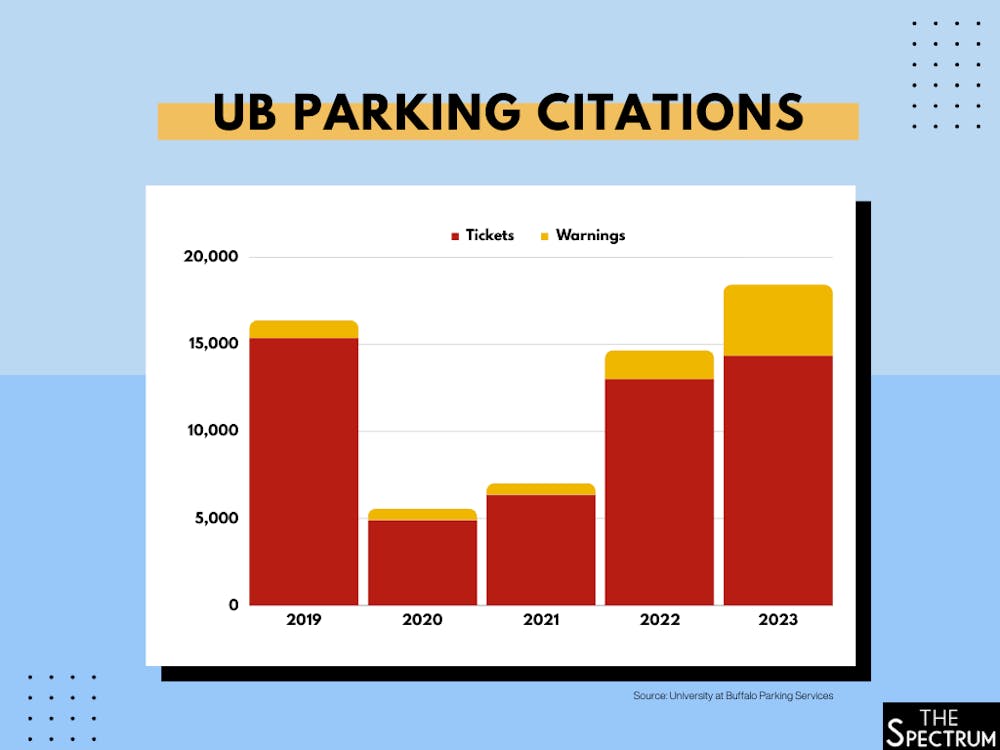Parking citations on UB’s campuses surpassed pre-pandemic levels for the first time this year, as more students returned to in-person classes and UB’s new electronic license plate recognition (LPR) system has made enforcement more efficient.
Parking enforcement personnel issued 18,440 citations between the beginning of 2023 and the end of November, up 26% from 2022 and 12% from 2019. Of those, 14,348 were tickets, with the remainder being warnings. The total number of tickets issued is 7% lower than 2019’s 15,361 tickets, but it’s on track to match 2019 by the end of the year and nearly triple 2020’s 4,910 tickets, according to UB parking data obtained by The Spectrum.
UB says the increase in citations is due to the resumption of regular enforcement after it was relaxed during the COVID-19 pandemic, and not because of the new LPR system, according to an email from UB spokesperson Jay Rey. In September, UB Parking & Transportation Director Chris Austin told The Spectrum he didn’t expect the system would lead to increased parking enforcement.
Parking enforcement personnel have given out more warnings — which do not incur a penalty — than in previous years. By the end of November, 4,092 warnings were handed out, making up 22% of total citations. In 2022, warnings made up 11% of citations, while warnings made up only 6% of 2019’s citations.
Matthew Reitmeier, assistant director of Parking Services, said the warnings are intended “to give the campus time to adjust to the new technology.”
The LPR system, which was fully implemented on July 1, uses vehicle-mounted cameras to scan license plates. LPR is used in all UB parking lots, except the Center for Tomorrow lot on North Campus and the Squire and NFTA Park & Ride lots on South Campus. The Parking & Transportation website says the switch to LPR will cut waste by eliminating more than 25,000 physical hang tags each year and will allow parking personnel to focus on “other customer service priorities like improving traffic flow and assisting commuters with wayfinding.”
“[LPR] has, in general, freed up our parking ambassadors to focus more on customer service, such as assisting motorists,” Reitmeier said. “It also has enabled additional parking staff to cover more of the campus.”
The news desk can be reached at news@ubspectrum.com
Hannah Rashad is the managing editor of The Spectrum.





